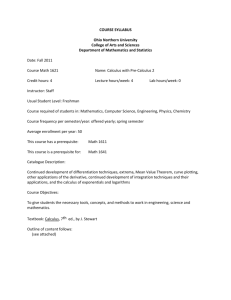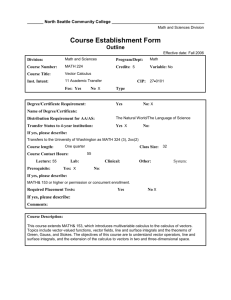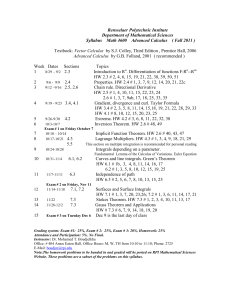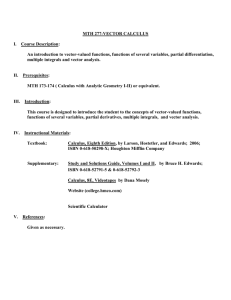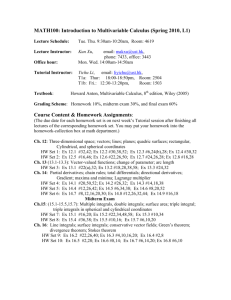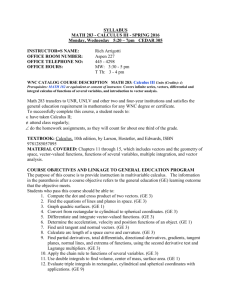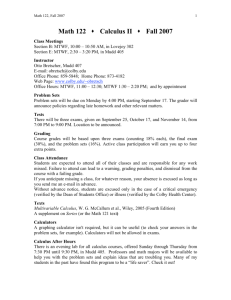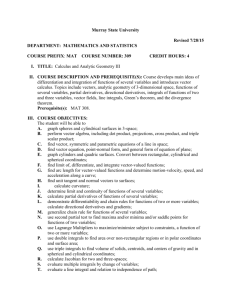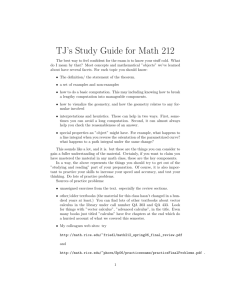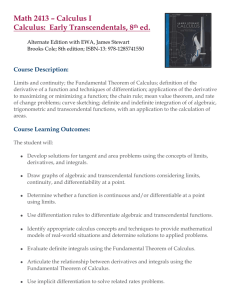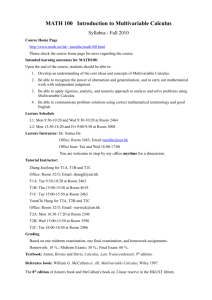MATH 220
advertisement
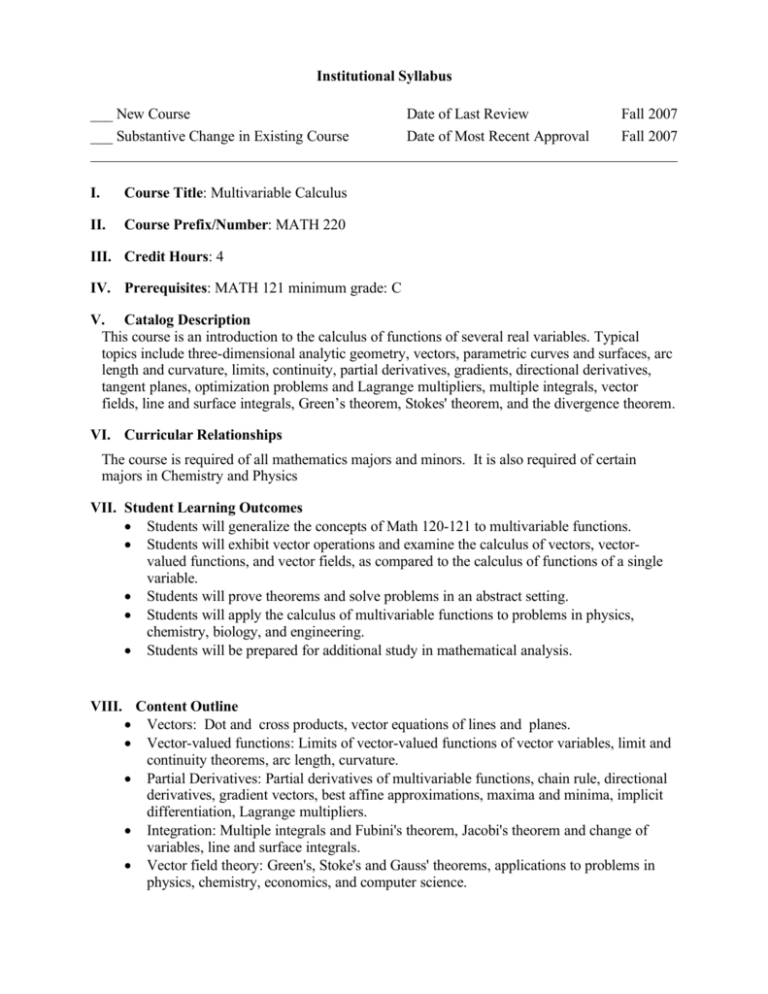
Institutional Syllabus ___ New Course ___ Substantive Change in Existing Course I. Course Title: Multivariable Calculus II. Course Prefix/Number: MATH 220 Date of Last Review Date of Most Recent Approval Fall 2007 Fall 2007 III. Credit Hours: 4 IV. Prerequisites: MATH 121 minimum grade: C V. Catalog Description This course is an introduction to the calculus of functions of several real variables. Typical topics include three-dimensional analytic geometry, vectors, parametric curves and surfaces, arc length and curvature, limits, continuity, partial derivatives, gradients, directional derivatives, tangent planes, optimization problems and Lagrange multipliers, multiple integrals, vector fields, line and surface integrals, Green’s theorem, Stokes' theorem, and the divergence theorem. VI. Curricular Relationships The course is required of all mathematics majors and minors. It is also required of certain majors in Chemistry and Physics VII. Student Learning Outcomes Students will generalize the concepts of Math 120-121 to multivariable functions. Students will exhibit vector operations and examine the calculus of vectors, vectorvalued functions, and vector fields, as compared to the calculus of functions of a single variable. Students will prove theorems and solve problems in an abstract setting. Students will apply the calculus of multivariable functions to problems in physics, chemistry, biology, and engineering. Students will be prepared for additional study in mathematical analysis. VIII. Content Outline Vectors: Dot and cross products, vector equations of lines and planes. Vector-valued functions: Limits of vector-valued functions of vector variables, limit and continuity theorems, arc length, curvature. Partial Derivatives: Partial derivatives of multivariable functions, chain rule, directional derivatives, gradient vectors, best affine approximations, maxima and minima, implicit differentiation, Lagrange multipliers. Integration: Multiple integrals and Fubini's theorem, Jacobi's theorem and change of variables, line and surface integrals. Vector field theory: Green's, Stoke's and Gauss' theorems, applications to problems in physics, chemistry, economics, and computer science. IX. Course Procedures/Policies/Grading Scale: Homework assignments will comprise some portion of the course grade. Assignments are designed to develop a student's reading, writing, synthesis, and critical thinking skills. At least three examinations are given each term. A comprehensive final examination is given during finals week. Computer software may be used to solve realistic problems. X. XI. Required/Recommended Readings A freshman-sophomore level calculus text is used for this course. Typical texts include: Thomas George, Maurice Weir, Joel Hass, Frank Giordano. Thomas’ Calculus. 11th Ed. Boston: Addison-Wesley, 2005. Larson, Ron, Robert Hostetler, and Bruce Edwards. Calculus: Early Transcendental Functions. 4th Ed. Boston, MA: Houghton Mifflin, 2007. Issues Unique to this Course: None XII. Additional Departmental Issues: None

